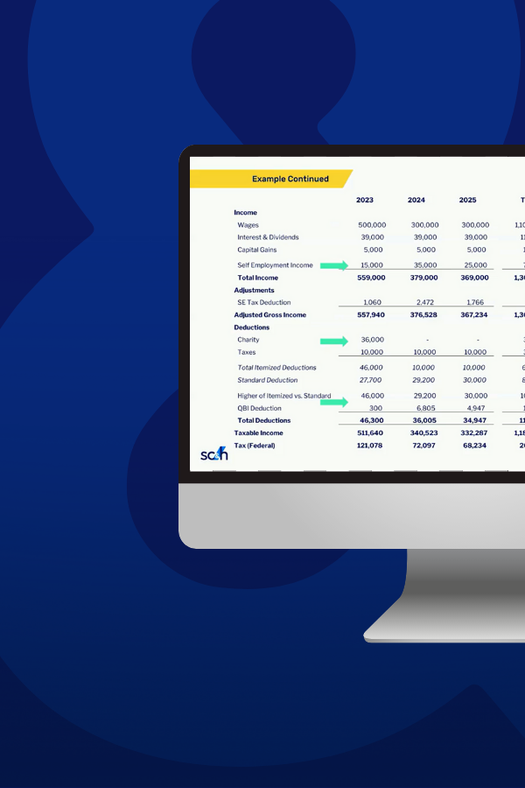Authored by Ken Mann | Managing Director, SC&H Capital, Special Situations
Over the past year, as a direct result of a global pandemic, troubled businesses were provided a lifeline via a flood tide of government loans—as a practical matter, equity due to the forgivable nature of PPP loans. This outpouring of cash, combined with very generous forbearance from lenders and landlords, allowed many businesses to float indefinitely and prevented a more severe economic downturn. However, that tide will quickly recede in the months to come and expose financially troubled businesses to a liquidity reckoning that could leave them fighting for survival.
It is undeniable that some organizations used this necessary funding to sustain or pivot operations through the threatening and unpredictable crisis. Many have regained their footing and will soon get back to business as usual. Though, this is not the case for all organizations. Numerous others came into the pandemic already battling financial distress. With the help of Covid-19 relief, they may have been able to fleetingly placate creditors or cover up their financial realities, but they are still swimming without a suit.
Unfortunately, creditors will be far less patient in the year ahead, which won’t bode well for these business owners. Banks will return to the practice of reporting non-performing loans and taking customary “workout” actions to remove themselves from these “special situations.” Ironically, Covid-19 may prove to have less impact on a business’ prospects for survival than its pre-pandemic performance. Businesses that were previously in good financial shape in 2019 are still better positioned to bounce back than companies, even those in seemingly pandemic-proof industries, that were struggling before the crisis arrived on our shores.
Ultimately, many of the businesses that suffered in 2020, and continue to do so in 2021, did so for all the usual reasons:
- Excessive debt
- Thin margins
- Major customer loss
- Competitive landscape
- Or any other number of ever-present issues
As the obscure fog of Covid’s fiscal impact lifts, troubled businesses will start to feel the pressure to reduce costs, sell non-core assets, or refinance debt. While a handful have the liquidity and the chops to approach these challenges alone, many will need a partner or new source of capital. Business owners can find their best-case scenario in turbulent economic waters if they first disabuse themselves of myths and avoid common mistakes surrounding the options for troubled companies.
Myths
1. Capital Is Not Available Right Now
For companies in distress, readily available capital in the marketplace does exist. While your company may no longer have the resources of a regulated bank at its disposal, alternative lenders (often backed by hedge funds) and other investors can take more risks and step in when banks want out.
In their pursuit of yield in a low interest rate environment, family offices and private equity groups continue to seek opportunities to put their substantial “dry powder” to work. These investors reach out to us every day looking for investments, and many are not afraid of a turnaround opportunity. In most industries, apart from those still battling the more severe consequences of Covid-19, there are stable companies that make for good strategic partners, and valuations are surprisingly good for both distressed and healthy companies.
If you examine the root cause of your challenges—and “lack of liquidity” is often a symptom, not a cause—you can begin to see what type of investor or transaction could help you solve that problem. Some businesses just need capital, others need access to new markets or expanded capacities. Whatever the case, finding the right partner is critical.
2. Wishful Thinking is a Sufficient Plan
If you believe that the Covid-19 vaccine and an economic turnaround alone will save your business, you may be in denial—particularly if you operate in an industry that has been spared the pandemic’s impact. The remission of pandemic-created havoc will not solve pre-existing weaknesses in a business or fatigued banking relationships.
Do not wait for a not yet identified turnaround plan to materialize or until the bank forces you to act. The best thing you can do is be proactive and realistic, not wishful and wildly optimistic. The longer you wait, the fewer options you will have.
Similarly, overpromising on debt repayment agreements on an ad hoc basis, without unambiguous evidence that you can live up to them, is a strategy doomed to fail. You must develop an all-inclusive budget that you are confident you can afford. You often only get one chance to restructure your obligations, don’t blow that opportunity by overpromising and underdelivering.
Mistakes
3. Forgetting to Manage the Business While in Distress
Yes, you might be putting out fires, but to achieve the best results, even while in distress, requires shifting some focus from managing the checkbook to managing the business. Preserve those facets that will be most valuable going forward and which hold the most potential in the market.
Keep your options open by evaluating your company’s drivers of value—what assets or attributes would be attractive to an investor? Whether it is intellectual property, a key team member, or a crucial customer, protect this asset so its value can be captured and preserved in a transaction, whether that occurs now or in the future.
Private equity is out there and looking to capitalize on transitioning markets. A partnership could help to, for example, pivot your food processing company from selling into the foodservice markets and into grocery stores and direct-to-consumer channels, but not if you have sold your specialized equipment or lost your chef and his recipe book.
Total liquidation is not the only option for most companies, especially at the onset of trouble, so try to keep some of your focus on the longer view and, if necessary, bring in help to focus on daily fires.
4. Hiding Your Challenges
A lack of financial transparency and pretending everything is “just fine” will not likely fool vendors and lenders for any length of time. When trust and credibility are lost, creditors become less cooperative when you most need them and often shift to a “first loss is best loss” mentality. Vendors and banks will work with businesses to provide time for a turnaround, so long as they are confident that they can believe in leadership. Transparency and humility are key.
Generally, distressed businesses do not improve with age, but that’s not to say it’s an impossible endeavor if management takes appropriate action. Develop a Plan B while it’s still possible and before your company runs through its forbearance periods or gets cut off by trade creditors. A new lender, an investor, or a partner might just be your best path to surviving in the short term and thriving in the long term.
The best time to bring in a professional to help you look for solutions is as soon as you realize you are unable to stay current on your payments. If you have received a letter of default from your lender or a notice that they will not renew a line of credit, you can still maximize your options—if you move quickly.
Not all investors or private equity groups are “vultures” looking to descend and take advantage of businesses during times of trouble. The key is to find the right fit for your company and unique situation. If you are looking to:
- Save your employees’ jobs, it is possible to find an investor that is interested in developing your brand or growing into new markets with the existing team
- Minimize damage but stay in control of the business, there are partners out there looking for leaders to invest in
- Sell and walk away, there are many buyers competing for opportunities, so you can maximize your recovery and leave your legacy in the right hands
A lot of strategic investment is taking place and companies lacking profitability do have options. If you recognize that you are barely staying afloat but can see the rescue options just ahead, then you can muster the will to tread water long enough to confidently make it to shore.
In Need of Trusted Advice or Guidance?
As an investment banking and advisory firm serving the middle-market, we offer insights and tailored solutions for mergers and acquisitions (M&A), employee stock ownership plans (ESOP), distressed M&A, and business valuations. If you would like to have a conversation about the options available to your business, or to your client’s business, please reach out to our team of advisors. Contact Us >






